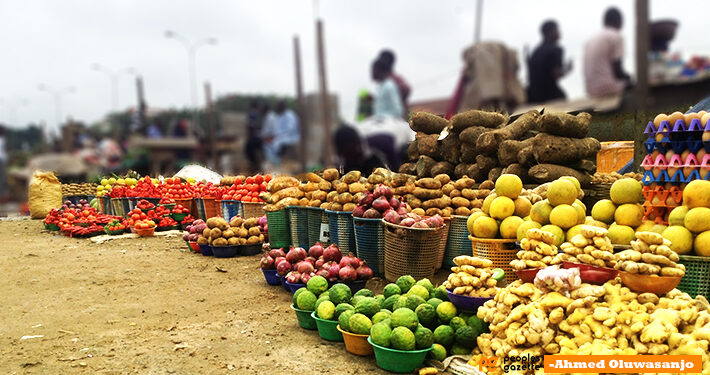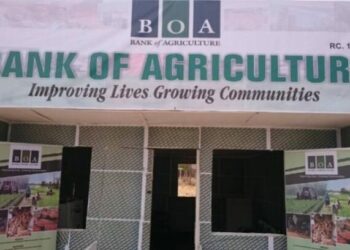In 1969, the USA’s historic Apollo 11 mission marked the fulfilment of President John F. Kennedy’s lunar landing goal.
Led by NASA, it unified diverse industries—aviation, technology, automobiles, telecommunications, electronics, and fashion—in a collective pursuit.
Such missions harness cross-sector energies to achieve national priorities, exemplifying their potent unifying force, as demonstrated by Apollo 11’s journey to the moon and back.
The challenge of food security
African nations are grappling with a pressing issue – food insecurity, a challenge now exacerbated by post-COVID conditions and the Ukraine crisis.
The numbers have always been alarming, but they’ve taken on a new dimension. A staggering 278 million people in Africa, equivalent to 20% of the continent’s population, endure chronic hunger.
This rate is twice the global average of 10%. Regrettably, Africa appears to be off track in its pursuit of achieving zero-hunger status by 2030.
To compound matters, the continent’s food import expenses could skyrocket from the present $43 billion to an astonishing $110 billion by 2030.
The situation is further complicated by widespread currency depreciation across the continent. The affordability of essential food items is becoming increasingly challenging.
A mere one percentage point increase in currency depreciation correlates with a 0.22 percentage point rise in inflation within the first year in the region.
When coupled with the looming threat of climate change, the outlook darkens. McKinsey’s yield models project that by 2030, Ethiopian wheat farmers will face an 11% greater likelihood of experiencing a 10% or more annual yield reduction.
For coffee farmers, the probability of a 25% or more drop in annual yield may increase from 3.2% to 4.2% in 2030, translating to a 31% rise and a 28% cumulative likelihood over the next decade.
This could slash the country’s GDP growth rate by approximately 3 percentage points. With agriculture contributing a significant portion of sub-Saharan Africa’s GDP, these challenges are deeply concerning.
Nigeria, in its pursuit of food security, has implemented various policies such as the Agriculture Transformation Agenda (ATA) in 2012, the Agriculture Promotion Policy (APP) in 2016, and the National Agricultural Technology and Innovation Policy (NATIP) of 2022.
While these policies have yielded mixed results, they have fallen short of achieving the coveted food security.
Recent data from the World Food Programme (WFP) for 26 Nigerian states in 2022 revealed that 34% of the population is in a stressed food security situation with only minimally adequate food consumption, while the population facing acute food insecurity increased by 5.4 million.
Industrial policies vs. national missions
Mariana Mazzucato, the renowned Italian-American-British economist, has championed the concept of national missions as a powerful driver of innovation and public policy.
In her influential works, “The Entrepreneurial State” (2011) and “The Mission Economy: A Moonshot Guide to Changing Capitalism” (2021), she emphasizes the transition from traditional sector-specific policy corrections to a mission-oriented approach that centres on achieving critical national priorities.
National missions set the course for innovation policies across various sectors. Take Nigeria’s food security challenge, for instance.
It spans multiple domains, including agriculture, education, science and technology, trade, finance, transportation infrastructure, and environmental considerations.
Rather than tackling isolated sector-specific issues, aligning all these sectors towards achieving a common national priority—food security—can yield significant synergies and efficiencies.
This mission-focused policy approach not only harnesses the unique strengths of the private, public, and third sectors but also holds them accountable through transparent mission metrics.
Historical precedents highlight the effectiveness of missions in achieving national objectives. During the United States industrial revolution, a mission to enhance agricultural productivity took centre stage.
The key driver was the adoption of improved seedlings in agriculture. To accomplish this mission, the U.S. leveraged its institutions: the United States Navy, the U.S. Patent Office, and the U.S. Post Office.
The Navy imported essential seeds, the Patent Office managed their rights, and the Postal Service distributed them to farmers via the mail system.
This success prompted the establishment of a national agriculture research bureau, initiated by the U.S. Patent Office.
In 1839, in response to this request, the U.S. Congress created the Agricultural Department of the Patent Office, which evolved into the Department of Agriculture in 1862.
Education was also integral to the mission, exemplified by the Morrill Act of 1862, which allocated federal land to each state for the establishment of colleges focused on agriculture, technical skills, military training, and classical studies.
By 1919, over three-quarters of the country’s wheat acreage was planted with previously unavailable seed varieties, thanks to the Morrill Act.
These historical examples underscore the transformative potential of national missions in addressing critical challenges and driving innovation across sectors, ultimately shaping the future of nations.
Food systems transformation is the pathway but not the mission
The food systems transformation approach serves as a strategic roadmap for agricultural missions. While food systems transformation may not be a captivating national priority on its own, it offers an effective framework for aligning diverse activities toward mission objectives.
Missions provide the overarching goals for food systems transformation efforts.
Bringing it Home: achieving national missions
Recently, the Nigerian government intensified its focus on food security, designating it as a key objective under the purview of the National Security Council (NSC).
This move, aimed at addressing spikes and dips in food availability, underscores the urgent need for a holistic approach.
Presidential spokesman, Dele Alake, emphasized the importance of synergy between the Ministry of Agriculture and the Ministry of Water Resources, highlighting the role of irrigation in year-round food production.
Additionally, the government plans to establish a National Commodity Board responsible for monitoring food prices and maintaining a strategic food reserve to stabilize prices.
While these measures are valuable in the short term, they represent a conventional approach to public policy—rectifying market failures without shaping the market’s evolution.
To truly secure the future of the food ecosystem and achieve sustainable food security, a different approach is needed.
One proposal is the establishment of an Office of National Priorities (ONP) within the Presidency.
The ONP would identify clear, achievable missions and priorities through a comprehensive top-down and bottom-up approach.
This would complement the functions currently performed by the Ministry of Budget and National Planning, offering greater flexibility and agility, crucial for addressing pressing national issues.
Once these priorities are identified, ministries can develop policies, plans, and programs aligned with these missions.
This approach avoids the risk of implementation inefficiencies that arise when multiple sectors are subsumed under a single policy, as each priority is treated as a standalone sector. Instead, the focus shifts to how policies contribute to the achievement of national priorities, fostering better coordination and outcomes.
By assessing policy success in the context of national priorities rather than isolated sector-specific milestones, the government can streamline its efforts and enhance development outcomes.
This approach empowers the government to navigate complex challenges like food security more effectively and ensures a coordinated approach to national development.
A defining decade for Nigeria
The coming decade holds immense significance for Nigeria’s future. Addressing complex issues like food security, youth unemployment, currency devaluation, and healthcare will define the nation’s trajectory in the 21st century.
These are formidable challenges, but by treating them as national priorities that unite public, private, and third sectors, Nigeria can make substantial progress in finding solutions.
It’s a pivotal period that calls for coordinated efforts to tackle these intricate problems head-on.
Written by;
Obinna Igwebuike
He is a management and development consultant who writes from Lagos, Nigeria.
























I love the wonderful expository on Nigeria state of hunger.